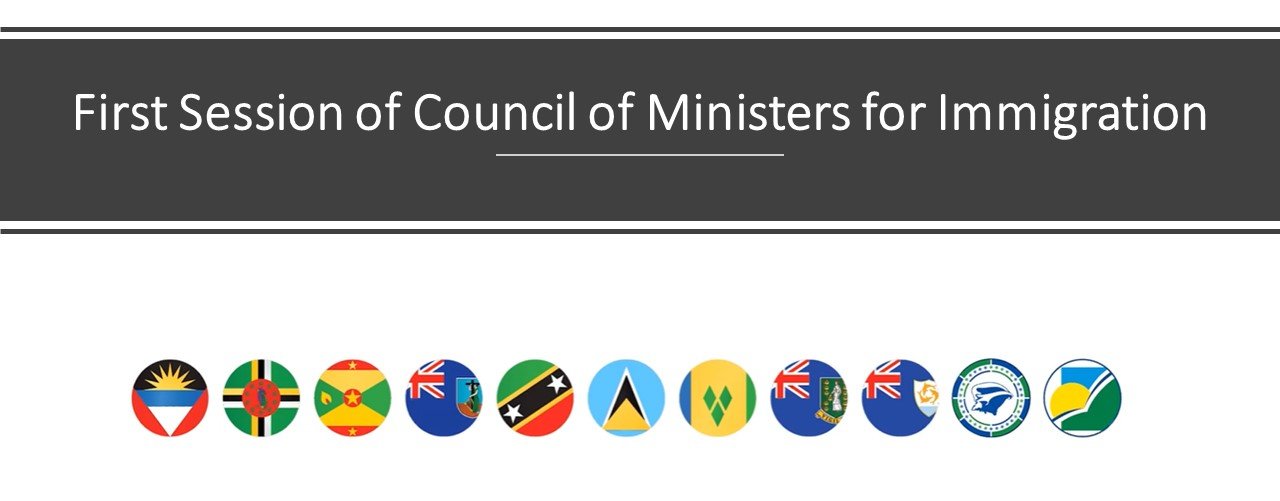OECS Convenes Inaugural meeting of the Council of Ministers for Immigration
Media Release
The Inaugural session of the Council of Ministers for Immigration was convened virtually on Friday, November 5th under the Chairmanship of the Honourable E. P. Chet Greene, Minister for Foreign Affairs, International Trade, and Immigration of Antigua and Barbuda.
The Meeting afforded the OECS Commission with the opportunity to update the Council of Ministers on the progress to date towards the operationalization of an OECS Single Domestic Space (SDS). The Revised Treaty of Basseterre (RTB) which established the Eastern Caribbean Economic Union (ECEU) allows for unfettered movement of resources including persons, labour, capital, service providers, businesses, and goods across the OECS Protocol Member States. The OECS Single Domestic Space will improve travel facilitation for the citizens of OECS Protocol Member States and their family members and third-country nationals including visitors.
In the main, several actions necessary for the full implementation of the OECS Single Domestic Space were addressed by the Council of Ministers. Among these issues included:
- The implementation of automated systems at the main ports of entry;
- Capacity building for border officials on new and emerging border management threats;
- The need for enhanced interoperability of the border management systems across the OECS Single Domestic Space.
Over the last year, the Caribbean Community Implementing Agency for Crime and Security (CARICOM IMPACS) has been working directly with several OECS Member States towards the development of Online ED Forms. The Online ED Forms will strengthen the resilience of border management systems and procedures within OECS Member States by improving the passenger clearing procedures, allowing for a more efficient process at the main points of entry. This effort will be further enhanced through the installation of automated systems such as kiosk machines at these ports of entry. These new systems, when implemented, will reduce the wait times and congestion at the main ports of entry. Hence, the OECS Commission anticipates that these investments will increase the capacity of OECS Member States to receive greater numbers of passengers on a yearly basis.
The Council of Ministers acknowledged the importance of these efforts to enhance overall border security and systems while ensuring that the freedoms associated with the movement of persons already delivered by the establishment of the ECEU were preserved and enhanced. The Council of Ministers approved the commissioning of a study to explore options for enhancing Border Management Systems interoperability to allow for greater sharing of passenger information across the OECS. In particular, the Council of Ministers noted the importance of this study to the operationalization of the OECS Single Domestic Space and moreover to the implementation of a multi-destination tourism marketing strategy in the OECS.
Member States present at the Council of Ministers included: Anguilla, Antigua and Barbuda, the British Virgin Islands, the Commonwealth of Dominica, Grenada, Montserrat, the Federation of Saint Christopher and Nevis, Saint Lucia and Saint Vincent and the Grenadines.
CARICOM IMPACS was represented by Mr. Rufus Ferdinand, Deputy Chief Operations Officer – Joint Regional Communication Centre (JRCC), Mr. Earl Harris, Assist Director – Strategic Services, Mr. Anselm Charles, Manager – Information and Communications Technology.
The investments in automated systems and the enhancement in border procedures are being financed by the European Union (EU) through the 11th European Development Fund (EDF) RIGHT Project and implemented by the OECS Commission.



